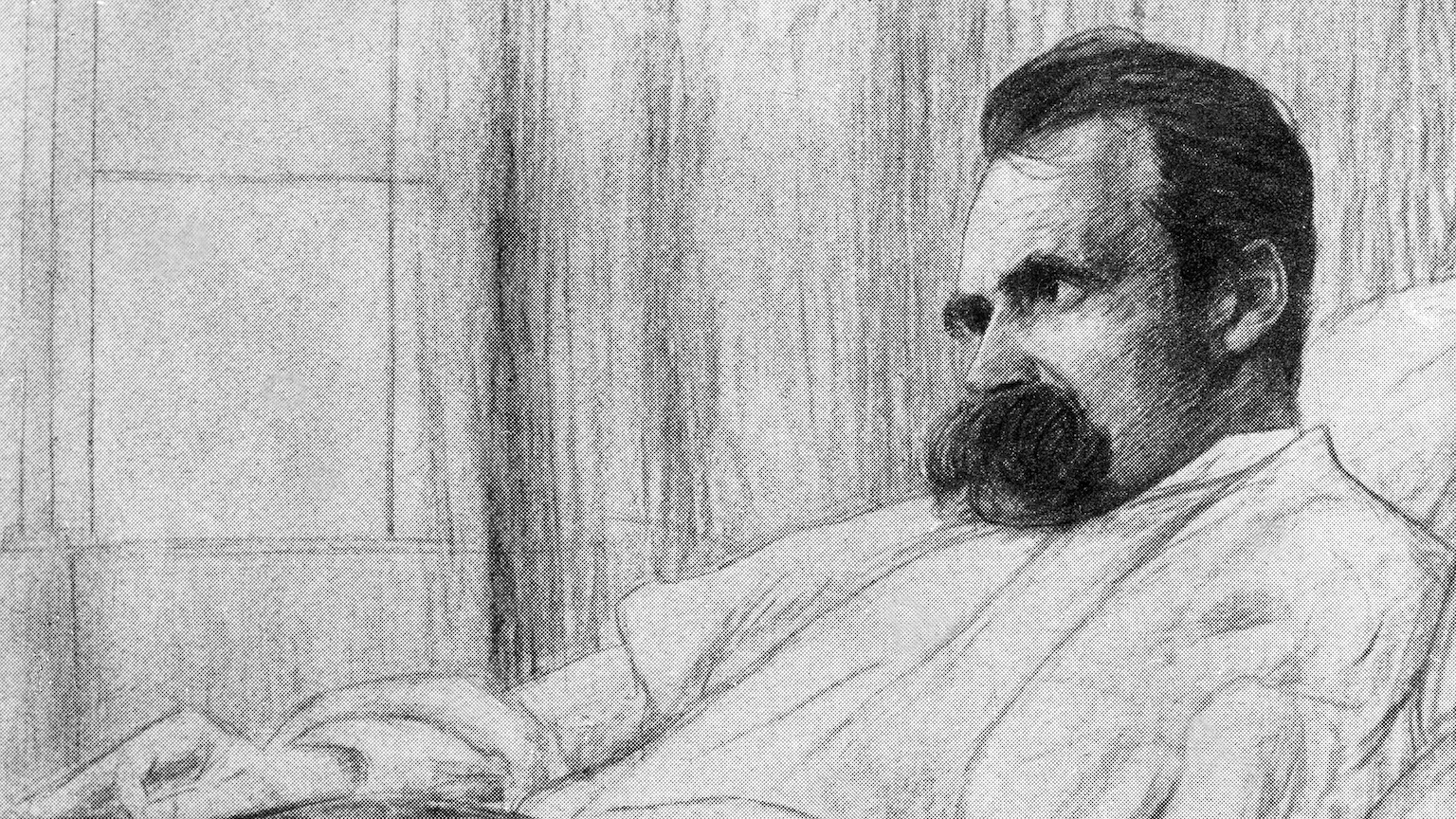How Nietzsche can improve your love life

- Friedrich Nietzsche had a nasty attitude toward women, which almost certainly developed after some bad personal experiences.
- His misogyny is a shame because he actually had some good relationship advice to offer.
- Nietzsche noted that conversation and friendship were vital to a marriage or long-term relationship.
Friedrich Nietzsche is incontestably one of the most controversial philosophers in the history of philosophy. One salient reason for the controversy surrounding Nietzsche and his work is the patent and explicit misogyny found in his later philosophy. To quote a rather terse and unpleasant example from Beyond Good and Evil (1886): “Even concubinage has been ruined — by marriage.”
Needless to say, Nietzsche had deep problems with women. But why? And considering these problems, how can we trust any of what Nietzsche had to say on the topic of romantic relationships?
The origin of Nietzsche’s misogyny
Sue Prideaux’s I Am Dynamite!: A Life of Nietzsche vividly describes the chain of events leading Nietzsche to his eventual misogynistic rhetoric. According to Prideaux, Nietzsche was by all accounts markedly polite toward women in his interpersonal life. For instance, he departed from the chivalry of his times, teaching his sister, Elisabeth, how to read and write. “All his life, he valued intelligent women, making close and enduring friendships with them… He disliked ignorant and bigoted women,” writes Prideaux.
Much of this hatred, it seems, arose out of his sister and mother’s ignorance and bigotedness and what he called their “chain-sickness.” Nietzsche was fervently opposed to anti-Semitism, and Elisabeth was so deeply entrenched in proto-Nazism that she married Bernhard Förster, who founded Nueva Germania in Paraguay, a delusional settlement predicated on the doctrine of Aryan superiority. Nietzsche’s mother and his sister would harp on various non sequiturs during his time of sickness — he suffered from month-on-end debilitating migraines — and dogmatically interpreted his works, adding their own beliefs and prejudices. Nietzsche believed that his family was trying to “yank on his chain,” as the term “chain-sickness” signifies. Still, more importantly, he had the belief that his mother and sister were attempting to thwart his ambition and ability to “self-overcome.”
However, the nail in the coffin that forever solidified Nietzsche’s turn to misogyny was his romantic encounters — namely, the only actual romantic encounter Nietzsche had his whole life: Lou Salomé. Salomé was the “intellectual femme fatale” who led Nietzsche on, while also deliberately dating and leading on Paul Rée, Nietzsche’s long-time friend, creating a tripartite of purposeless misery.
Nietzsche was befallen by bad people, which is psychologically — and even physically — damaging. Nonetheless, it isn’t only in bad taste and immoral to publish books that degrade women but also intellectually dishonest, childish, and idiotic. Such rants have their basis in the sort of weakness that Nietzsche’s philosophy so vehemently condemns, namely, weakness out of resentment and self-pity. Even more so, Nietzsche’s misogyny goes against his own brilliant work on the topic of romantic relationships found in his earlier work.
Nietzsche actually had good relationship advice
Consider, for instance, in Human, All Too Human, in which Nietzsche writes, “When marrying, one should ask oneself this question: Do you believe that you will be able to converse well with this woman into your old age? Everything else in marriage is transitory, but the most time during the association belongs to conversation.” Nietzsche had a knack for being able to say a lot succinctly, to the point where he gloats about it in Twilight of the Idols: “It is my ambition to say in ten sentences what others say in a whole book.”
Conversation and its role in marriage — or, more specifically, the role it plays in deciding who your long-term romantic partner should be — is one such example of that ambition. Few things, if any, are as important as conversation. If one’s values are radically different from one’s partner’s, this likely will result in adversarial conversations or perhaps their complete absence. Even if you enjoy physical intimacy or shared interests, your ability to speak with them on important matters — such as how and if to raise children, living arrangements, priorities, and boundaries — dissolves, and along with it, the relationship. Hence, it is worthwhile to consider whether you can converse with someone into old age. Indeed, it should be the criterion for remaining in or even initiating a relationship with someone.
Another example of Nietzsche’s insight on relationships is the proposal that the worst marriages are those that lack friendship. Friendship, for Nietzsche, is not casual and shallow but rather has an end in mind. As he expresses in The Gay Science, friendship entails the mutual cultivation of the best attributes each friend possesses in one another. Friends, for instance, encourage and praise you when you are a step closer toward actualizing your best self. A friend is not, by contrast, simply someone you go to for feeling good. Critique should be welcomed in the context of friendship. Indeed, someone who knows you, sees you going down the wrong path, and fails to say anything to you about it is not your friend. This sort of friendship is integral to a successful long-term relationship.
How can we trust a misogynist’s advice on relationships?
Despite the wisdom of conversation and friendship in long-term relationships, how can we trust this advice coming from someone who spoke so archaically and viciously about women?
There are two answers to this. First, data suggests that conversation and friendship are non-negotiable elements of maintaining a long-term relationship’s stability. Second, Nietzsche’s rhetoric did not compose the bulk of his work and is more the product of bad experiences than any genuine philosophical conviction in the inferiority of women. Though most of us refuse to admit it, falling into the weakness of hate is one of the most human slip-ups imaginable.
In light of that, instead of dismissing Nietzsche due to his rhetoric, we ought to give his work on the romantic life due consideration. Without conversation and friendship, your relationship is likely doomed to failure.





